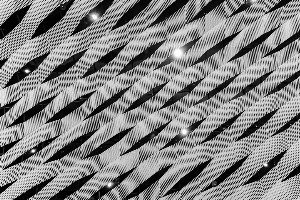Sandra Stroparo
Da dessubjetivação ao sujeito poético contemporâneo
Introduction
Da dessubjetivação ao sujeito poético contemporâneo. Explore a evolução do sujeito literário, da voz do autor romântico à centralidade do texto moderno. Reflita sobre a desconstrução do sujeito e o lugar do sujeito poético atual.
Abstract
O presente texto se apresenta como um rápido comentário sobre a representação da voz do sujeito literário entre o Romantismo e o momento atual, chegando a mais interrogações que respostas efetivas. Se o Romantismo fez nascer o grande autor, sagrado por sua voz original e sua genialidade, a Modernidade foi aos poucos fazendo o texto propriamente dito, a palavra, ganhar a centralidade da obra, fazendo desaparecer o sujeito, a despeito do próprio autor, a despeito inclusive da clareza e objetividade a que o público leitor estava habituado. Traçando essa história de forma bastante resumida a partir do olhar de autores como Benjamin, Blanchot, Barthes, Foucault, Merquior e Rancière, o artigo pretende levantar afirmações e dúvidas desses autores e estabelecer certos questionamentos que nos ajudem a refletir sobre o lugar do sujeito hoje e a mudança de paradigma representada pelo sujeito poético.
Review
This article proposes an ambitious and timely exploration into the evolving representation of the literary subject's voice, spanning from the Romantic era to the contemporary moment. The title, "Da dessubjetivação ao sujeito poético contemporâneo," clearly signals a theoretical trajectory that promises to navigate the complex shifts in how authorship and subjectivity are understood within literature. By framing its inquiry as a "quick commentary" designed to generate more questions than definitive answers, the abstract immediately positions the piece as a thought-provoking intervention rather than an exhaustive historical account, which can be an effective approach for fostering critical dialogue on such a broad and enduring topic. The core of the article traces a fascinating intellectual arc: from the Romantic reverence for the author as an original genius, through Modernity's increasing emphasis on the text and language itself, leading to the gradual "disappearance" of the subject. The chosen theoretical framework is robust, drawing on luminaries such as Benjamin, Blanchot, Barthes, Foucault, Merquior, and Rancière. This selection of thinkers indicates a sophisticated engagement with post-structuralist and critical theory, positioning the article to synthesize diverse perspectives on authorship, textual autonomy, and the subject's place in literary production. The stated aim to raise their affirmations and doubts, and to establish pertinent questions, demonstrates a commitment to a nuanced and reflective discussion, culminating in an examination of the "paradigm shift represented by the poetic subject" in today's literary landscape. As a review, the strength of this article lies in its capacity to provoke essential reflections on the contemporary condition of literary subjectivity. By synthesizing a wealth of critical thought from a concise perspective, it offers a valuable framework for understanding the historical forces that have shaped our perception of the author and the text. To maximize its impact, the article should ensure that, despite its "quick commentary" nature, the conceptualization of the "poetic subject" is robustly articulated, clearly distinguishing it from previous iterations and effectively demonstrating how it addresses or reconfigures the earlier process of "desubjectification." This clarity will be crucial for readers to fully grasp the significance of the proposed paradigm shift and to engage deeply with the questions the article promises to raise.
Full Text
You need to be logged in to view the full text and Download file of this article - Da dessubjetivação ao sujeito poético contemporâneo from O Eixo e a Roda: Revista de Literatura Brasileira .
Login to View Full Text And DownloadComments
You need to be logged in to post a comment.
Top Blogs by Rating
The Spiritual Shelf Life: Navi...
By Sciaria
The Ageless Enigma: What Biolo...
By Sciaria
Bending Light, Shaping Reality...
By Sciaria
Favorite Blog
Reclaim Your Day: Mastering th...
By Sciaria
Unleash Your Inner Recess: The...
By Sciaria
Ops Debt: Unmasking the Silent...
By Sciaria





